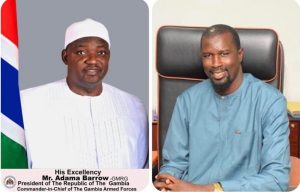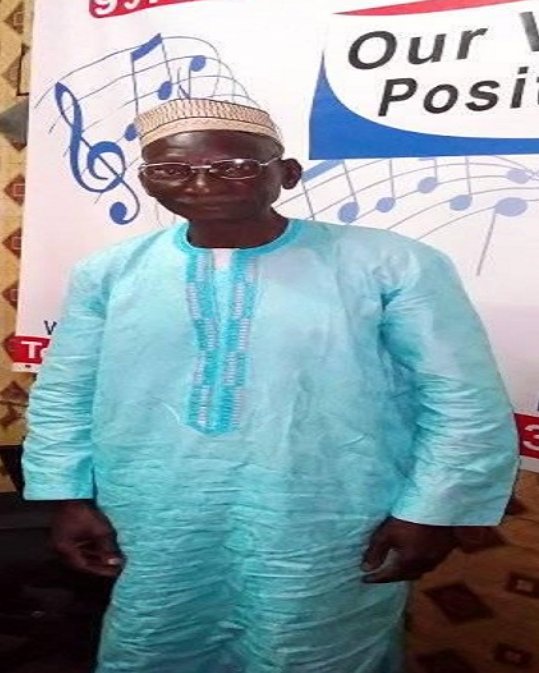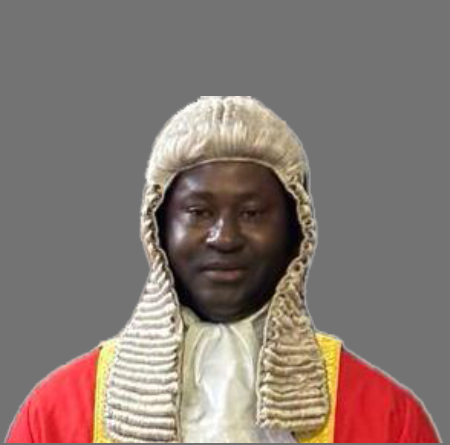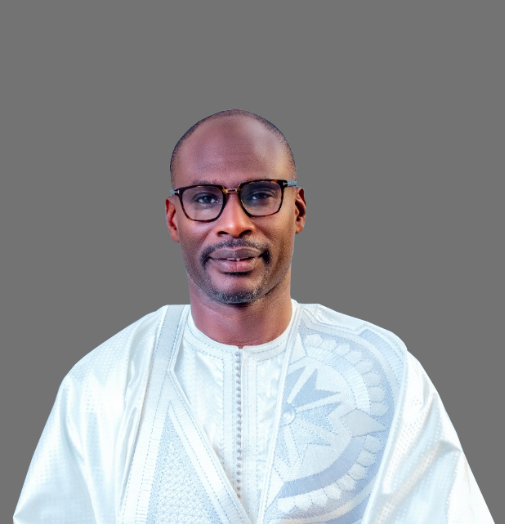
In an explosive legal filing before the Supreme Court of The Gambia, the former Auditor General Modou Ceesay has accused President Adama Barrow of unlawfully removing him from office after he refused to halt several high-profile audits and decline a ministerial appointment offered by the President.
The lawsuit, titled “Writ to Invoke Original Jurisdiction,” names the Attorney General and the Inspector General of Police as defendants. It seeks constitutional redress for what Ceesay describes as his “forceful removal” from office on September 15, 2025, in violation of the Constitution and the National Audit Office (NAO) Act, 2015.
According to the writ, Ceesay was appointed Auditor General in November 2022 and had initiated several major audits—including a special audit of the National Food Security and Processing Marketing Company (NFSPMC), a compliance audit of the Ministry of Lands, and tax and revenue audits covering the 2023–2024 financial years.
According to the plaintiff, President Adama Barrow invited him to multiple meetings, where the president reportedly expressed concern about the timing of the audits, suggesting they would “affect his election bid”. Ceesay claims the president personally “urged him to either stop or delay the audit”. The management of NFSPMC also reportedly complained to the president about the difficulties they faced due to the Forensic Audit Unit.
Ceesay further alleges that the President, in the presence of the Chief of Staff and the Secretary to Cabinet on August 24, 2025, urged him to stop the audit of the Ministry of Lands and advised him to stop or delay the auditing of the Gambia Revenue Authority (GRA) and the special audit of NFSPMC.
The plaintiff also notes in the filing that both the GRA and the concessionaire managing the digital revenue systems “deliberately refused to comply” with his formal request to provide copies or extracts from their database backups, a request made under the National Audit Office Act 2015.
The plaintiff also alleged in the writ that there was a growing concern regarding the statutory audit of the Central Bank of The Gambia (CBG) conducted by PKF Audit Firm. The plaintiff was summoned to a meeting with the President, Chief of Staff, Governor, and First Deputy Governor to address issues raised by CBG management.
According to the plaintiff, CBG officials claimed that the delay in releasing a promised payment of approximately D1.2 billion to the government was due to his request that the bank meet with the auditors—engaged by his office through its Outsource Committee—to resolve outstanding audit queries following the completion of their fieldwork.
The legal filing details a dramatic sequence of events leading up to his forceful removal. On September 10, 2025, Ceesay was summoned to State House to meet the President. During the meeting, the president reportedly thanked Ceesay for his work and mentioned he was in the process of a cabinet reshuffle. The President announced that following consultation with his advisers, they had agreed on Ceesay’s appointment as Minister of Trade, Regional Integration and Employment, handing the Plaintiff a sealed envelope.
Ceesay, the writ said, departed the State House after assuring the President he would respond. However, upon reviewing the envelope’s contents, he immediately requested another audience with the President that same day.
In a subsequent meeting that afternoon, Ceesay, the writ claimed informed the President of his decision to decline the ministerial offer, stating he wished to remain as Auditor General where his “skill set and experience are more closely matched”. The President insisted, saying he had already appointed Ceesay’s replacement and the appointment had been published in the media.
Despite receiving “compliments and congratulatory messages as Minister of Trade”, Ceesay said he drafted an official letter declining the offer later that evening. At 23:00 hours on September 10, he received an unexpected visit at his house from the Chief of Staff and the Honorable National Assembly Member for Sabach Sanjal, who reportedly stated they were sent by the President to “beg the Plaintiff to accept the offer.”
On the morning of September 11, 2025, Ceesay’s writ disclosed that he sent a formal letter declining the offer to the President. Ceesay stresses that he “at no time accepted the ministerial appointment either verbally or in writing.”
Ceesay continued to perform his duties as Auditor General even after a delegation of Imams, relatives, and elders visited him on September 12, urging him to accept the ministerial appointment. He further claimed to have received information that his refusal would result in his forcible removal the following Monday.
According to court filings, Ceesay was forcibly removed from office on September 15, 2025, by officers of the Gambia Police Force acting under direct instructions from the President.
The writ contends that this action contravened sections 158, 159, 160, and 169 of the 1997 Constitution, which safeguard the independence and tenure of the Auditor General, as well as section 16 of the National Audit Office Act, which mandates due process before any removal from office.Ceesay is now seeking a declaration that his removal was unconstitutional and unlawful, and that the state’s actions amount to a breach of the separation of powers and institutional independence guaranteed under the Constitution.
Legal analysts say this case could become a landmark test of executive interference in oversight institutions, particularly the independence of the National Audit Office — a pillar of public accountability.
The Supreme Court, presided over by Chief Justice Hassan B. Jallow, mentioned the case for the first time earlier this week, setting the stage for what is expected to be one of the most consequential constitutional battles in recent Gambian history.



